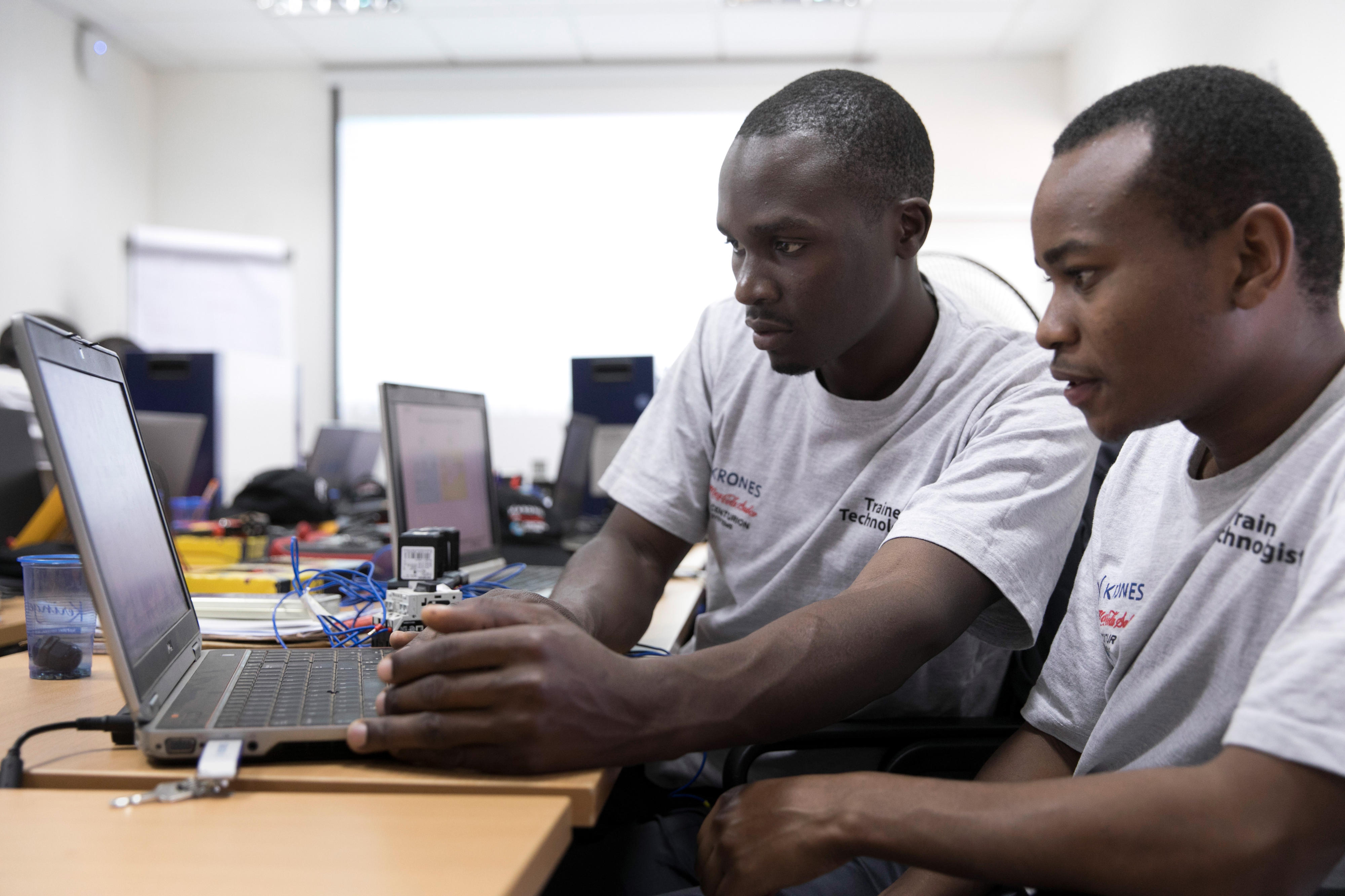Core area “Sustainable economic development, training and employment” Creating opportunities for young people
A student is testing solar panels on the roof of a training facility for solar technicians and energy auditors at Strathmore University, Nairobi.
Vocational training initiative
Nearly 60 companies and industry federations have joined the Kenyan-German TVET Initiative (KGTI). As part of the Initiative, seven centres of excellence for vocational training have been set up in cooperation with the private sector and Kenya's education ministry. Over the coming years, cooperation activities are to be expanded to cover about 60 vocational schools. By providing digital education programmes, this form of education is to be made more attractive and more easily accessible. Another achievement of the Initiative has been the establishment of a start-up centre that assists young people who are hoping to set up their own business.
A Digital Transformation Centre has been established to improve the basis for the digital transformation in Kenya. The Centre helps players from the spheres of government, business and civil society to create the necessary environment – in terms of innovation, data markets and data privacy – for a sustainable digital sector. In addition to its support for the activities of the Digital Transformation Centre, Germany also assists Kenya with introducing digital technology in vocational training. For one thing, this gives young people in rural areas better access to vocational education programmes. Moreover, the use of digital technology is hoped to make vocational education more attractive.
Impacts of Germany's activities
Trainee mechatronics engineers at Krones' training facility in Kenya
Training in agricultural occupations at polytechnic training institutions was organised with German support for over 20,000 young people. 54 competency-based curricula were developed. Five of them will be offered on the basis of digital technology. The curricula for seven cooperative vocational courses in industry-oriented fields (such as vehicle maintenance, mechatronics, auto body making, agricultural machinery maintenance, and cooling system construction) now meet Kenya's new standards for competency-based education and training. At seven centres of excellence for vocational training, the first pilot classes have started their education. In collaboration with enterprises, some 1,150 places for dual (school-based and industry-based) training have been established. Starting in 2023, the programme will be expanded nationwide. Germany is also assisting Kenya's education ministry in drafting a national gender strategy for the training sector.
And through the regional “Employment for Sustainable Development in Africa” programme, over 34,000 people in Kenya received training and thus improved their chances of finding a job. More than 29,000 of them (including over 11,000 women and over 17,000 young people) found a job immediately after the programme. In addition, more than 11,000 micro, small and medium-sized enterprises were able to improve their competitiveness (2015–2021).
As at: 02/05/2023

